Note:This post is today's religion column for the
Tribune & Georgian.
This past Monday evening, I joined more than 20 St. Marys residents and my fellow pastor Rick Douylliez in speaking to our city council about beginning curbside recycling. Asked to present one very brief fact as part of the presentation, I did what most preachers do, I took advantage of standing at a lectern to say a bit more.
I said that I wish that I could give a biblical justification for curbside recycling, but that would take at least 45 minutes and then I added in jest that it would probably end in me convincing them that those who don’t recycle go to Hell.

Of course it is bad Christian theology to suggest that we are saved by anything other than faith in Jesus. And so your salvation does not depend on recycling. But just because your eternal destiny isn’t at stake, does that really mean that God has no opinion on the matter?
I think instead one will find that a careful reading of scripture points to sound biblical reasons why both Christians and Jews should do what is in their power to do when it comes to wise use of the earth’s resources.
In going back to Genesis, we find that humans are to be caretakers of the earth. Proper stewardship of creation was an important task God gave to humanity. We should be as interested in caring for the earth as we are in fulfilling God’s other commands.
Even before God created humans, God’s plan called for a close, mutually beneficial relationship between humanity and the rest of creation. In Genesis 2:4-25 we find a deep connection between the human and the plants. The fertile soil is in Hebrew Adamah and mankind in Hebrew is Adam. The adam and the adamah need one another. We are humans of the humus and care of that fertile soil is part of our charge from God. For not only does the humus need the rain, which God will provide, but it needs the human.
Genesis 2:5 says that “all the plants of the field were not yet sprung up because the Lord God had not yet caused it to rain upon the earth and there was no human for the working of the humus.”
The New International Version translates Genesis 2:15 saying God put the human in the garden in order to “to till it and keep it.” The Hebrew words are avad and shamar. The range of meaning for avad includes “work,” “worship,” and “service.” Avad can mean to “dress” or “till” when applied to farming. Shamar has a range of meaning including “guard,” “watch,” “observe,” “preserve,” and “keep.”
By “range of meaning” I mean that even such a venerable translation as the King James Bible will translate the words avad and shamar in these different ways depending on the context. One may translate Genesis 2:15 saying we were put in the garden “to work and to watch” or “to serve and preserve.” Whatever translation you arrive at should be consistent with the rest of scripture. And elsewhere we find this close connection between mankind and the rest of creation.
This is consistent with the prophet Amos who demonstrated the organic connection between the plants of the field and the humans (Amos 4:7-10). When humans are out of relationship with God (as shown through the treatment of the poor in a time of relative wealth) the crops suffer along with the people.
The prophet Hosea also cried out against the people (Hosea 2:8-9) for forgetting that the fruit of the land comes from God. When the people return to right relationship with God (Hosea 2:14-23), the land is made fruitful once again.
Humanity was created to be in relationship with the land as well as with God. We are to care for the land through working the land and preserving the land. God created us to be dependent on one another. When humans fail to steward the land, as God created us to do, both the land and humanity suffer.
I don’t think it is a stretch at all to say that when Jesus spoke against people not using wisely the gifts God had given them that the gift of creation was included. In Matthew 25:14-30, Jesus tells of a man going on a journey who entrusts to his slaves his possessions (named talents in the parable, for an amount of money common at the time). On his return, each is called into account for the ways in which he cared for his masters possessions. Clearly this includes our care of the rest of creation.
This is where we return to recycling. For in recycling we reuse resources in such a way as to get maximum return. Rather than wasting energy to make new glass or new aluminum while tossing out perfectly good glass and aluminum, recycling recreates the old into the new. This saves energy, creates jobs and extends the amount of resources available to us. Recycling then fits with the wise use of resources Jesus taught in his parable of the talents. It also fits with the preservation of earth’s resources assumed in Genesis.
But to be honest, a sound biblical look at how humans are to be stewards of the earth doesn’t support curbside recycling. To be honest, curbside recycling is just the first step, the barest necessity once we take God’s charge to us seriously. So you can blow off recycling and get to heaven. But when you do, you may still have to make an account to your creator for why you didn’t do what was in your power in caring for the creation.
(The Rev. Frank Logue is pastor of King of Peace Episcopal Church in Kingsland.)
Labels: ecology, Recycling
Typically, one finds explanations that focus on Jesus and on people's mistaken views about Jesus. One often hears the line of argument, for instance, that Zealots were hoping for a Messiah to lead them into victorious battle over their enemies and simply mistook Jesus to be that kind of Messiah, turning on him by Good Friday. One often sees that kind of portrayal in today's movie versions.







 Then I imagined myself descending quite literally into my own heart. There the "lub, dub" of my heart beat slowed as time approached standing still. And within my own heart I found the quietest place to be with God, no matter what is going on around.
Then I imagined myself descending quite literally into my own heart. There the "lub, dub" of my heart beat slowed as time approached standing still. And within my own heart I found the quietest place to be with God, no matter what is going on around. 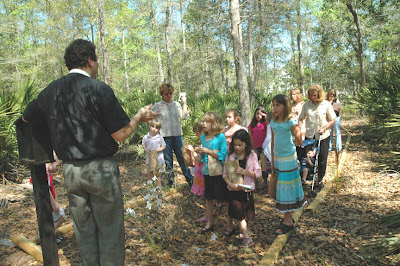


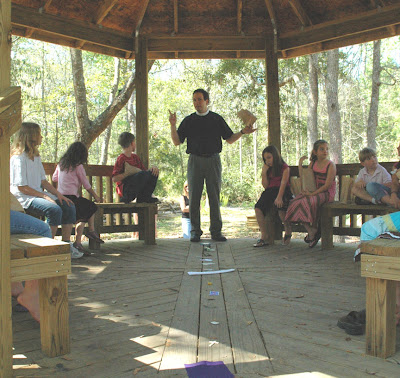

 On Saturdays, it is my practice to share something about that weekend's Gospel reading. But today, I want to share something related to
On Saturdays, it is my practice to share something about that weekend's Gospel reading. But today, I want to share something related to 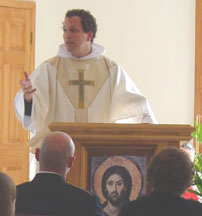 Next I have to see how the scripture and what I have found in it relates to us today. What does all this talk of dying to win the prize mean to 21st century American Christians?
Next I have to see how the scripture and what I have found in it relates to us today. What does all this talk of dying to win the prize mean to 21st century American Christians?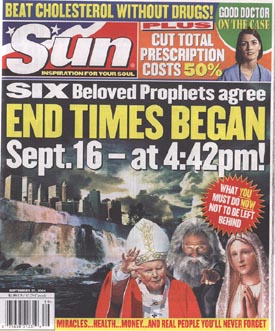


 We go, like Max, to where the wild things that “roared their terrible roars and gnashed their teeth and rolled their terrible eyes and showed their terrible claws” are. But we go into the wilderness in Lent as Christians knowing the most frequent command in the entire Bible is “Fear not.” Those words are spoken by God to Abraham as he starts off on the journey that leads him so far from his home. Confronting our fears, living into that commandment, “Do not be afraid” transforms us with a radical openness, a place in which God’s love can make a dwelling.
We go, like Max, to where the wild things that “roared their terrible roars and gnashed their teeth and rolled their terrible eyes and showed their terrible claws” are. But we go into the wilderness in Lent as Christians knowing the most frequent command in the entire Bible is “Fear not.” Those words are spoken by God to Abraham as he starts off on the journey that leads him so far from his home. Confronting our fears, living into that commandment, “Do not be afraid” transforms us with a radical openness, a place in which God’s love can make a dwelling.


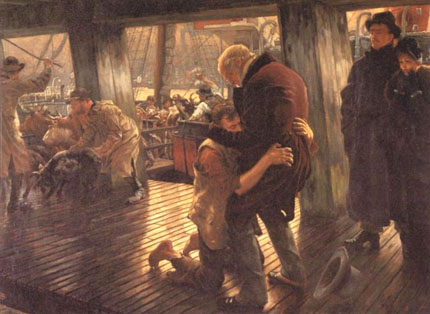
 Of course, such a view affirms our natural idea of fairness. But that's just the point. That is where the argument breaks down. It is simply too legalistic, places too much emphasis on the unfairness of the prodigal getting an additional portion of inheritance, and relies too much on the concept of rewards and punishments.
Of course, such a view affirms our natural idea of fairness. But that's just the point. That is where the argument breaks down. It is simply too legalistic, places too much emphasis on the unfairness of the prodigal getting an additional portion of inheritance, and relies too much on the concept of rewards and punishments.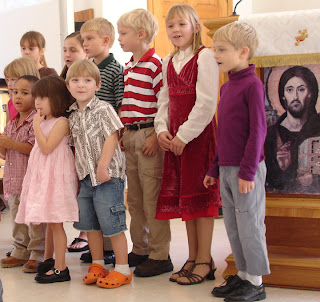





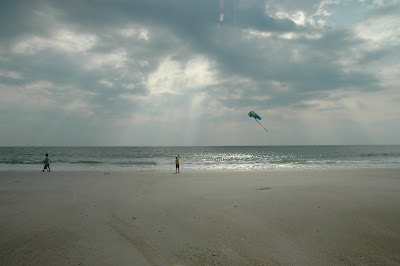



 "A man had a fig tree planted in his vineyard; and he came looking for fruit on it and found none. So he said to the gardener, 'See here! For three years I have come looking for fruit on this fig tree, and still I find none. Cut it down! Why should it be wasting the soil?' He replied, 'Sir, let it alone for one more year, until I dig around it and put manure on it. If it bears fruit next year, well and good; but if not, you can cut it down.'"
"A man had a fig tree planted in his vineyard; and he came looking for fruit on it and found none. So he said to the gardener, 'See here! For three years I have come looking for fruit on this fig tree, and still I find none. Cut it down! Why should it be wasting the soil?' He replied, 'Sir, let it alone for one more year, until I dig around it and put manure on it. If it bears fruit next year, well and good; but if not, you can cut it down.'" The tree cannot lift itself by its roots. They (the leaders) need the intervention of an outsider, the gardener, God himself!
The tree cannot lift itself by its roots. They (the leaders) need the intervention of an outsider, the gardener, God himself! For instance, Republicans were more likely than Democrats to strongly assert that the Bible is accurate in all of the principles it teaches (57% versus 40%); twice as likely to believe Satan is a real spiritual entity (33% versus 17%); more likely to reject the idea that good works can earn salvation (35% versus 23%); and more commonly describe themselves as absolutely committed to Christianity (61% versus 48%).
For instance, Republicans were more likely than Democrats to strongly assert that the Bible is accurate in all of the principles it teaches (57% versus 40%); twice as likely to believe Satan is a real spiritual entity (33% versus 17%); more likely to reject the idea that good works can earn salvation (35% versus 23%); and more commonly describe themselves as absolutely committed to Christianity (61% versus 48%).
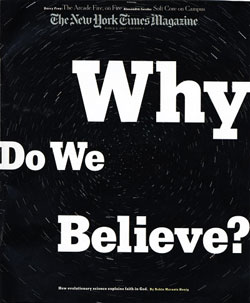














2 Comments:
At 3/31/2007 9:10 AM, Anonymous said…
Anonymous said…
What was the title of the TV movie?
At 4/01/2007 2:48 AM, King of Peace said…
King of Peace said…
You would have to check with Paul, who wrote the reflection quoted above. His website is http://girardianlectionary.net/.
Post a Comment
<< Home